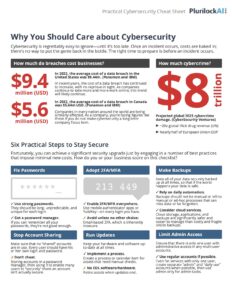Understanding Password Complexity
Password complexity refers to the characteristics and elements that constitute a secure and resilient password. A complex password is designed to be resistant to various attacks, such as brute force attempts, dictionary attacks, and other forms of password cracking. The key components of password complexity include length, diversity, randomness, and avoidance of easily guessable information.
Key Components of Password Complexity:
- Length: The length of a password is a fundamental aspect of its complexity. Longer passwords generally provide a higher level of security, as they increase the potential combinations an attacker must try to guess the correct one. Modern recommendations often advocate for passwords with a minimum length of 12 characters, and longer passwords are encouraged for enhanced security.
- Character Diversity: A complex password should incorporate a mix of character types, including uppercase and lowercase letters, numbers, and special characters. The inclusion of these different character sets significantly increases the complexity of the password, making it more resistant to both automated and manual password cracking attempts.
- Avoidance of Predictable Patterns: Truly complex passwords avoid predictable patterns or easily guessable information, such as common words, phrases, or easily accessible personal information. Passwords like “password123” or “qwerty” are highly insecure due to their predictability and vulnerability to dictionary attacks.
- Randomness: Complex passwords are characterized by their randomness, making them challenging to guess even with sophisticated algorithms. Randomly generated passwords, especially when combined with the aforementioned elements, contribute to a robust defense against various types of attacks.
Why Password Complexity Matters
Defense Against Brute Force Attacks:
Brute force attacks involve systematically trying all possible combinations until the correct password is discovered. Password complexity acts as a formidable defense against such attacks by increasing the time and computational resources required to crack a password. Longer and more complex passwords create an exponentially larger search space, making it impractical for attackers to guess the correct combination within a reasonable timeframe.
Resistance to Dictionary Attacks:
Dictionary attacks involve using precompiled lists of commonly used passwords or words from dictionaries to guess passwords. Password complexity mitigates the risk of falling victim to dictionary attacks by introducing elements that are not easily predictable. For instance, a password like “P@ssw0rd” is significantly more resistant to dictionary attacks than a common word or phrase.
Enhanced Security in the Face of Credential Stuffing:
Credential stuffing occurs when attackers use previously leaked usernames and passwords from one service to gain unauthorized access to other accounts where users have reused the same credentials. Complex passwords that are unique to each account help prevent the success of credential stuffing attempts, as the leaked credentials would not be effective in gaining access to other accounts.
Protecting Against Rainbow Table Attacks:
Rainbow table attacks involve precomputed tables of hash values for possible passwords, allowing attackers to quickly match hashed passwords obtained from a data breach. Complex passwords, especially when combined with strong cryptographic hashing algorithms, significantly increase the time and resources required to conduct successful rainbow table attacks.
Safeguarding Against Phishing:
Phishing attacks often involve tricking individuals into revealing their passwords through deceptive emails or websites. While password complexity itself may not directly protect against phishing, it becomes a critical factor when combined with user education. Users who are accustomed to creating and maintaining complex passwords are generally more discerning and less likely to fall victim to phishing attempts.
Compliance with Security Standards:
Many security standards and regulations, such as the Payment Card Industry Data Security Standard (PCI DSS) and the National Institute of Standards and Technology (NIST) guidelines, mandate the use of complex passwords as part of broader security measures. Adhering to these standards not only helps organizations stay compliant but also ensures a baseline level of security that protects against a range of potential threats.
In-Depth Analysis of Password Complexity Importance
Evolving Threat Landscape:
As cybersecurity threats continue to evolve, attackers employ increasingly sophisticated methods to compromise passwords. The use of advanced algorithms, machine learning, and powerful computing resources makes it imperative for individuals and organizations to adapt their password practices. Emphasizing password complexity becomes crucial in this context, as it raises the bar for attackers and makes their efforts more time-consuming and resource-intensive.
Role of Technology in Password Complexity:
Advancements in technology have enabled the implementation of secure password storage and hashing mechanisms. Hashing algorithms like bcrypt, Argon2, and scrypt, when combined with complex and unique passwords, provide an additional layer of defense against unauthorized access. These technologies contribute to password security by ensuring that even if a database is compromised, the actual passwords remain challenging to decipher.
Human-Centric Approach:
While technology plays a significant role, addressing the human factor is equally important in enhancing password complexity. User education and awareness programs are essential components of a holistic cybersecurity strategy. Educating users about the importance of creating complex passwords, avoiding common pitfalls like password reuse, and utilizing password managers can significantly contribute to a more secure digital environment.
Trade-Off Between Security and Usability:
Balancing security and usability is an ongoing challenge in the realm of password complexity. While complex passwords provide a higher level of security, overly stringent requirements can lead to user frustration and the adoption of insecure practices, such as writing down passwords or using easily guessable variations. Striking the right balance involves considering user experience while ensuring that security standards are met.
Password Managers as a Facilitator:
Password managers play a pivotal role in promoting password complexity while addressing usability concerns. These tools generate and store complex passwords for users, eliminating the need to remember multiple intricate combinations. Additionally, password managers contribute to security by reducing the likelihood of password reuse, a common pitfall that undermines overall password strength.
Continuous Monitoring and Adaptation:
The importance of password complexity is not a one-time consideration but an ongoing aspect of cybersecurity. Continuous monitoring, regular security assessments, and adaptation to emerging threats are essential. Periodic password policy reviews, user training sessions, and technological updates contribute to maintaining an effective defense against evolving cybersecurity risks.
Conclusion
In the dynamic landscape of cybersecurity, where threats are persistent and technology evolves rapidly, password complexity emerges as a linchpin in the defense against unauthorized access and data breaches. Its significance lies not only in its role as a deterrent against brute force and dictionary attacks but also in its ability to adapt to the evolving tactics of cybercriminals. Organizations and individuals alike must recognize the importance of password complexity, integrate it into their cybersecurity strategies, and balance security requirements with user experience to foster a resilient and user-friendly digital environment. As technology continues to advance and threats become more sophisticated, the commitment to password complexity remains a fundamental aspect of safeguarding sensitive information in the digital age.











